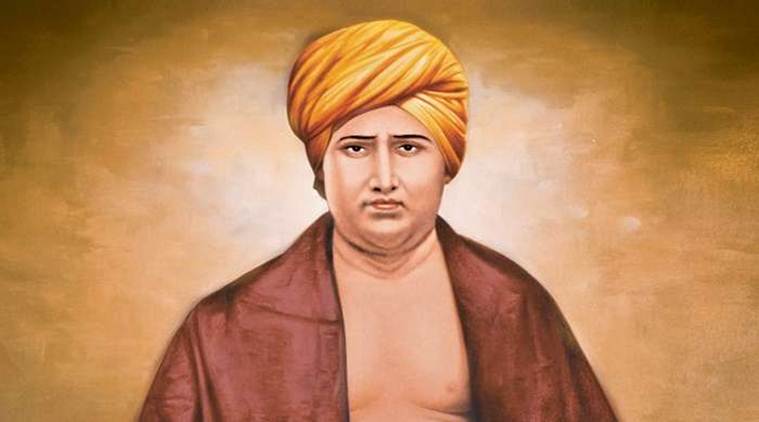prasad1
Active member
Believing in miracles is somewhat common. Holding these beliefs is not limited to certain age groups nor is it restricted to certain religious denominations or a religious affiliation. In 2007, a study surveyed almost 36,000 Americans, aged 18 to 70-plus-years-old, and found that 78 percent of people under the age of 30 believed in miracles versus 79 percent among those older than 30 (Pew Research Center, 2010). With respect to religious affiliation, 83 percent of those who were affiliated believed in miracles in contrast to 55 percent of respondents who were unaffiliated. Although people from all religions believe in miracles, over 80 percent of those with Protestant and Catholic affiliations endorsed this belief.
Some people rely on religious or spiritual beliefs as a way to live their lives; however, many others turn to such beliefs in time of need. Relying on a powerful, beneficent, supernatural being (e.g., God, angels, guardians) to be present, and hopefully intervene, can help the afflicted cope with extremely difficult situations. In medical contexts, faith in God and/or the competency of their treating medical professionals can provide powerful psychological comfort. This is especially so when a patient believes God acts through physicians.
When a doctor predicts little to no chance for a patient’s recovery, it is not uncommon for the patient and/or family members to reject the prognosis. They may question the doctor’s predictive accuracy. Moreover, if they believe in divine intervention, the patient’s surrogate (usually a family member) may be more likely to request continuation of life support. In such cases, medical professionals who underestimate the importance of religious and spiritual beliefs may be undermining their patient’s medical care by creating conflicts and impaired bereavement (Widera, Rosenfeld, Fromme, Sulmasy, & Arnold 2011).
On the other hand, the quality of the patient’s life near the time of death can be adversely affected when individuals are steadfast in their hope for miraculous healing to the extent that they reject care that will ease the patient’s demise. Consequently, there needs to be a mutual understanding between the medical team and the patient and their family, where the spiritual beliefs of the patient/family are respected, and the medical condition is meaningfully and sensitively communicated to them.
There are many people whose spiritual and religious beliefs include the existence of miracles. To some, these beliefs may seem peculiar or even reflective of mental illness. We should not be so inclined as to mistake this faith in the supernatural as a sign of a mental disorder. Doing so takes away the power of giving meaning to life; particularly, in the direst of circumstances when life is threatened. This vehicle of hope should not be underestimated or debased.

 www.psychologytoday.com
www.psychologytoday.com
Some people rely on religious or spiritual beliefs as a way to live their lives; however, many others turn to such beliefs in time of need. Relying on a powerful, beneficent, supernatural being (e.g., God, angels, guardians) to be present, and hopefully intervene, can help the afflicted cope with extremely difficult situations. In medical contexts, faith in God and/or the competency of their treating medical professionals can provide powerful psychological comfort. This is especially so when a patient believes God acts through physicians.
When a doctor predicts little to no chance for a patient’s recovery, it is not uncommon for the patient and/or family members to reject the prognosis. They may question the doctor’s predictive accuracy. Moreover, if they believe in divine intervention, the patient’s surrogate (usually a family member) may be more likely to request continuation of life support. In such cases, medical professionals who underestimate the importance of religious and spiritual beliefs may be undermining their patient’s medical care by creating conflicts and impaired bereavement (Widera, Rosenfeld, Fromme, Sulmasy, & Arnold 2011).
On the other hand, the quality of the patient’s life near the time of death can be adversely affected when individuals are steadfast in their hope for miraculous healing to the extent that they reject care that will ease the patient’s demise. Consequently, there needs to be a mutual understanding between the medical team and the patient and their family, where the spiritual beliefs of the patient/family are respected, and the medical condition is meaningfully and sensitively communicated to them.
There are many people whose spiritual and religious beliefs include the existence of miracles. To some, these beliefs may seem peculiar or even reflective of mental illness. We should not be so inclined as to mistake this faith in the supernatural as a sign of a mental disorder. Doing so takes away the power of giving meaning to life; particularly, in the direst of circumstances when life is threatened. This vehicle of hope should not be underestimated or debased.

Do You Believe in Miracles?
Faith in miracles shouldn’t be mistaken as a sign of mental illness. It diminishes giving meaning to life, particularly when life is threatened.



